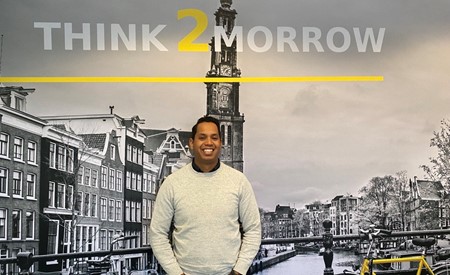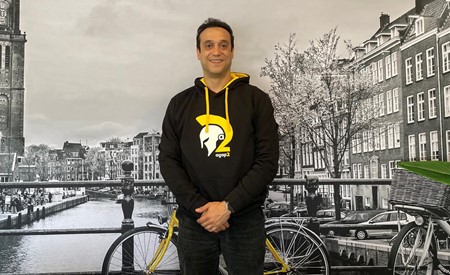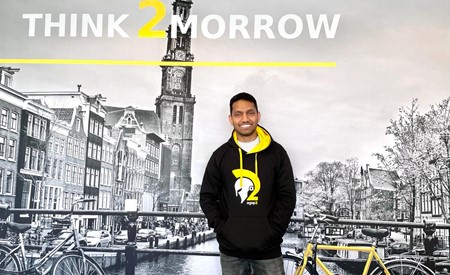Inside agap2 with Robert Beckman

- Can you briefly describe your role as a Test Manager and what a typical day looks like for you?
There is no typical day in my role as Testmanager Bagage Handling System, but you can roughly see 2 kinds of days;
- A regular day is like many colleagues will recognise and consists of meetings with projectteams, participating in Pre-SAT sessions and reviewing documents. These days are mostly a combination of remote and live meetings.
- The other kind of day mostly takes place during evening and night hours and are filled with witnessing and coordinating commissioning and testing in the field. This usually can only take place during the night due to always taking place in a live system, with the risks and continuation issues that go with it.
- Could you share a bit about the current project you are working on, such as its scope, goals, and biggest challenges?
My current project is at Amsterdam Airport Schiphol at the Baggage Handling System. I am part of virtually all project teams that are responsible for all changes and additions to the system. This goes from software upgrades to commissioning of whole new additions, from conveyors to container loading/unloading solutions.
There are two kinds of projects: Multi Year Maintenance Projects (MJOP), with the goal of keeping the system working, simply said. And there are projects where we roll-out new additions and extensions to the system.
Biggest challenge that virtually all projects are in a working busy airport. So even if an addition is in principle a Greenfield project, there is always the challenge of interfacing and integrating in living and working environments.
- From your perspective, what are the most important skills or qualities a Test Manager needs have in order to succeed in complex IT projects?
First of all you have to be able to “listen”. Communication both spoken and written. You have to be able to understand what is to be tested; focus on functionality or technology. For example during test-documents I review I have to know what the writer means with a test case and what that case proves. If this is clear and SMART, there are less discussions during testing itself.
Also you have to have enough deep knowledge and critical of what is to be tested that you can pass or fail a test. And in this decision you have to be firm and clear, as consequences are always impactful. So a good preparation is paramount!
And lastly, you have to have good instincts, be able to read / listen between the lines. Especially during live testing I am constantly monitoring the mood and progress, so I know when to ask questions, and when to communicate with other stakeholders. This goes together with the former point, as letting things go on too long or pull the plug too soon have great consequences!
- Looking ahead, are there any areas in testing or IT that you would like to explore or develop further?
My biggest challenge is the complexity of the system, both technical as operational. Also the combination of many fields (IT, Electrical, Mechanical) make it interesting and challenging. So I will constantly have to familiar myself with all these aspects, where the operational part is the most complex, due to the many stakeholders that are involved, like Operations, Baggage Handlers and the different contractors that are doing their projects and maintenance. My first step is brushing off my electrical engineering skills and getting myself involved in as many projects as I can ;-)
.png)
.png)





